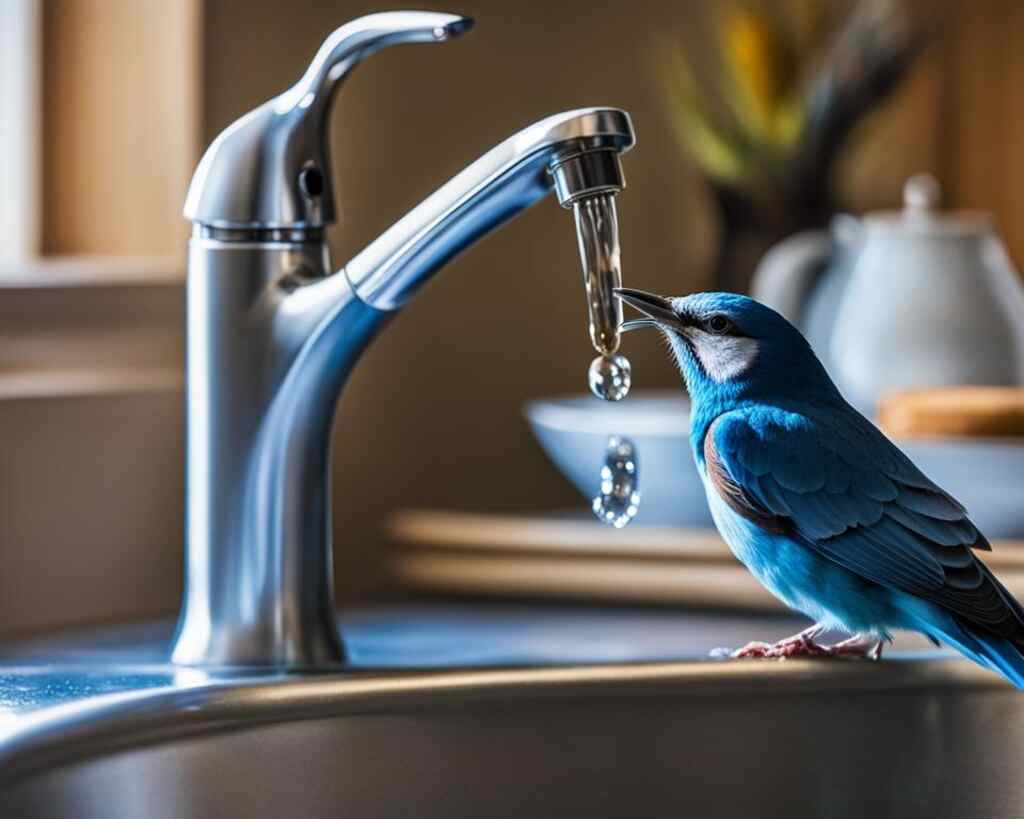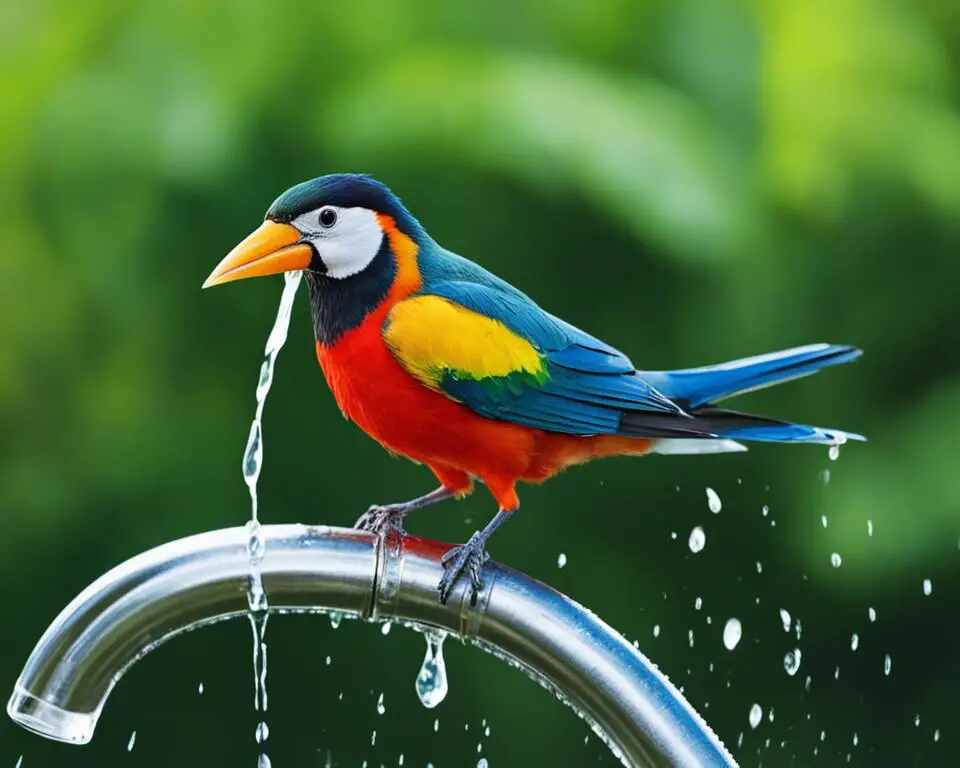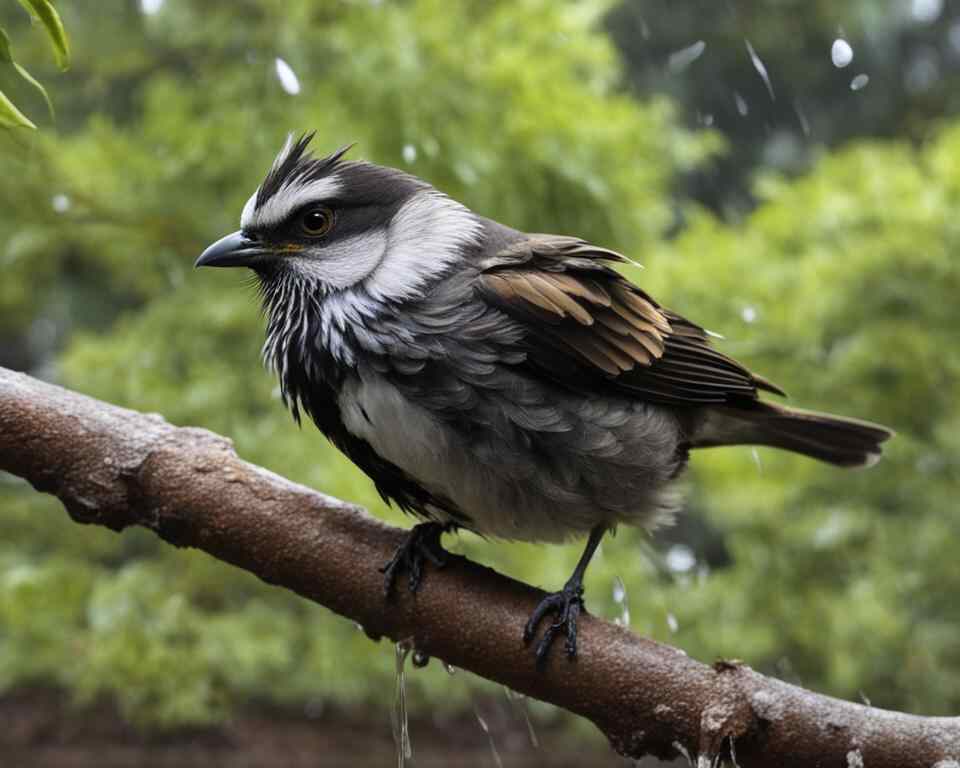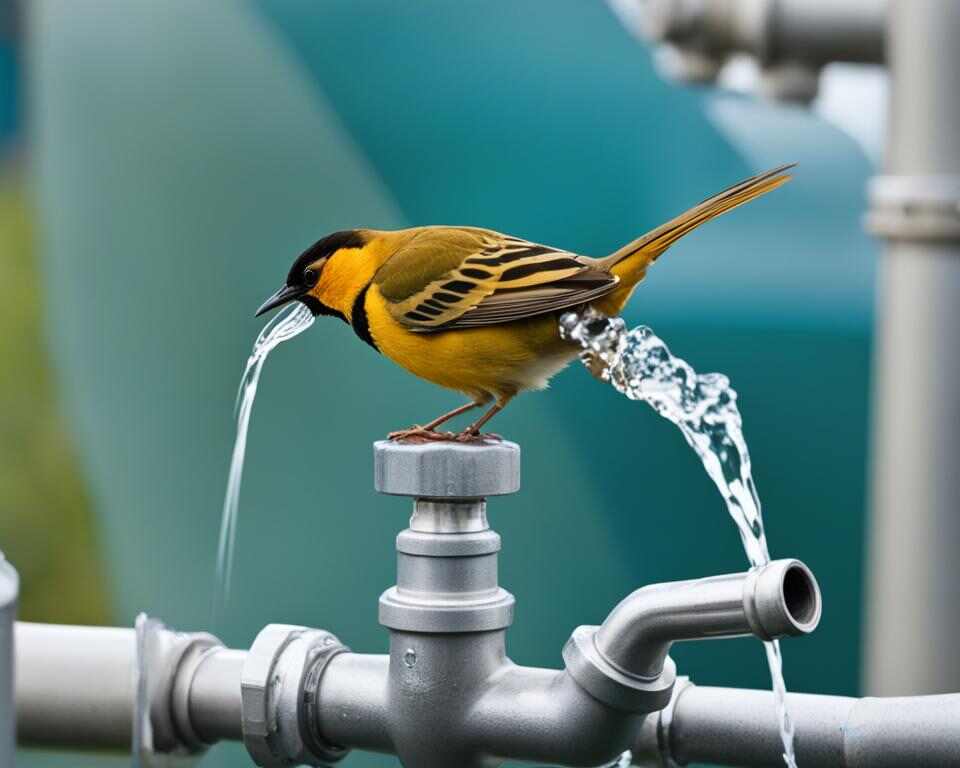Providing birds with access to clean and safe drinking water is crucial for their health and well-being. As a bird owner, I understand the importance of ensuring that my feathered companions stay hydrated.
However, when it comes to tap water, there are certain considerations that need to be taken into account. In this article, I will explore the safety of tap water for birds and provide valuable tips on how to ensure they are getting the best hydration possible.
Table of Contents
Key Takeaways:
- Tap water can be safe for birds to drink in moderation.
- Chlorine, chloramines, fluoride, and heavy metals may be present in tap water and can potentially harm avian health.
- Using filters to purify tap water and changing the water frequently are effective ways to provide high-quality hydration for birds.
- Bottled spring water can be an alternative to tap water, but it’s important to consider its source and quality.
- By implementing the tips and recommendations in this article, bird owners can prioritize the hydration needs of their feathered friends and promote their overall well-being.
Assessing the Effects of Tap Water on Avian Health
Tap water can contain various chemicals and contaminants that may pose risks to the health of birds. It is important for bird owners to understand the potential effects of tap water on avian health and take appropriate measures to ensure the safety of their feathered companions.
Understanding Chemicals in Tap Water: Chlorine and Chloramines
One common chemical found in tap water is chlorine, which is used as a disinfectant to kill harmful bacteria and pathogens. While chlorine is essential for maintaining water hygiene, it can be detrimental to bird health if ingested in high concentrations. Birds have highly sensitive respiratory systems, and the inhalation of chlorine fumes or the consumption of water containing high levels of chlorine can lead to respiratory distress and other health issues.
Another chemical often present in tap water is chloramines, which are a combination of chlorine and ammonia. Chloramines are used as an alternative to chlorine for water disinfection. Similar to chlorine, chloramines can have adverse effects on avian health if consumed in large amounts.
Fluoride in Tap Water: Good for Teeth but Trouble for Feathers?
Fluoride is a controversial chemical added to tap water in many areas for dental health benefits. While fluoride is beneficial for human teeth, it may have adverse effects on birds, especially those with delicate feather structures. High levels of fluoride in tap water can lead to feather abnormalities and weaken the overall integrity and coloration of bird feathers.
Heavy Metals: The Invisible Danger in a Bird’s Drink
In addition to chemicals like chlorine, chloramines, and fluoride, tap water can sometimes contain heavy metals such as lead, copper, and zinc. These metals can leach into the water from aging pipes or other sources of contamination. Ingesting water contaminated with heavy metals can lead to severe health issues in birds, including organ damage, neurological disorders, and even death.
Understanding the potential risks associated with tap water and its chemicals is crucial for bird owners. By being aware of these substances and their impact on avian health, steps can be taken to minimize the risks and provide birds with safe drinking water.
Can Birds Drink Tap Water? Uncovering the Truth
While there may be concerns about the safety of tap water for birds, it is important to note that they can indeed drink tap water in moderation without significant harm. To determine whether tap water is suitable for birds, several factors need to be considered, including the importance of moderation, water quality, and individual bird needs.
When it comes to water consumption, moderation is key. Birds should have access to fresh, clean water at all times, but excessive water intake can lead to health issues. It is crucial to strike a balance and ensure that birds drink an appropriate amount of water based on their size, species, and environmental conditions.
The water quality plays a significant role in avian health. While tap water may contain certain chemicals and contaminants, their levels are typically within acceptable limits for avian consumption. However, it is recommended to be cautious and monitor the water source to avoid any potential risks. If you are worried about the quality of tap water, you can consider using a filtration system specifically designed for avian use. This can help remove any impurities and provide cleaner water for your feathered friends.
Additionally, considering individual bird needs is vital in determining the suitability of tap water. Different species of birds may have varying sensitivities, and some birds may be more susceptible to the effects of certain chemicals. If you notice any adverse reactions or changes in behavior after providing tap water, it may be best to consult with a veterinarian who specializes in avian health for personalized guidance.
In conclusion, birds can safely drink tap water in moderation. By ensuring moderation, monitoring water quality, and considering individual needs, bird owners can provide a suitable drinking water source for their avian companions. Remember to prioritize the health and well-being of your feathered friends when choosing their water source.
Ensuring High-Quality Hydration for Our Feathered Friends
To ensure that birds receive high-quality hydration, it is important to take certain measures. This section will explore different ways to provide clean and safe drinking water for birds, including the benefits of using filters to purify tap water, the importance of changing water frequently, and a comparison of bottled spring water and tap water. By implementing these practices, bird owners can ensure their feathered friends stay properly hydrated.
The Benefits of Filters: Purifying Water for Birds
Filters can play a crucial role in ensuring that birds have access to clean and safe drinking water. Tap water often contains chemicals such as chlorine and heavy metals that can be harmful to birds. Using tap water filters specifically designed for bird hydration can effectively remove these contaminants, providing a healthier water source for your feathered companions.
Changing Water Often: The Key to Avian Vitality
Regularly changing the water in your bird’s drinking container is essential for maintaining optimal hydration. Stagnant water can become a breeding ground for bacteria and other harmful microorganisms. By replacing the water frequently, you can ensure that your bird has access to fresh and clean water, reducing the risk of waterborne illnesses.
When it comes to choosing between bottled spring water and tap water for your bird, there are a few factors to consider. Bottled spring water is often considered a safe and convenient option, as it undergoes filtration and is free from contaminants. However, it can be expensive and may accumulate plastic waste over time. On the other hand, tap water can be a suitable option if properly filtered. By using tap water filters specifically designed for birds, you can provide a cost-effective and environmentally friendly alternative to bottled spring water.
Conclusion
Providing safe and clean drinking water is essential for the health and well-being of birds. It is crucial to ensure that the water they consume is free from potential contaminants that can harm their delicate systems. While tap water can be consumed by birds in moderation, it is important to take steps to ensure its quality and minimize any risks.
By implementing the tips and recommendations discussed in this article, bird owners can prioritize the hydration needs of their feathered companions and promote their overall health and vitality. Filters can be used to purify tap water, removing harmful chemicals such as chlorine, chloramines, and heavy metals, providing a safer option for avian pets to drink. Additionally, changing the water frequently is essential to maintain optimal freshness and avoid the build-up of bacteria.
For those who prefer an alternative to tap water, bottled spring water can be a viable option. However, it is important to carefully review the brand and ensure that it is free from any additives or contaminants that could be harmful to birds. Ultimately, the best water source for birds will depend on individual circumstances and preferences, but ensuring its safety should always be a top priority.
By considering the potential risks of tap water and taking steps to ensure the quality of their birds’ drinking water, bird owners can maintain the health and vitality of their beloved pets. Remember, providing safe drinking water is a fundamental responsibility that contributes significantly to the overall well-being of our feathered friends.





